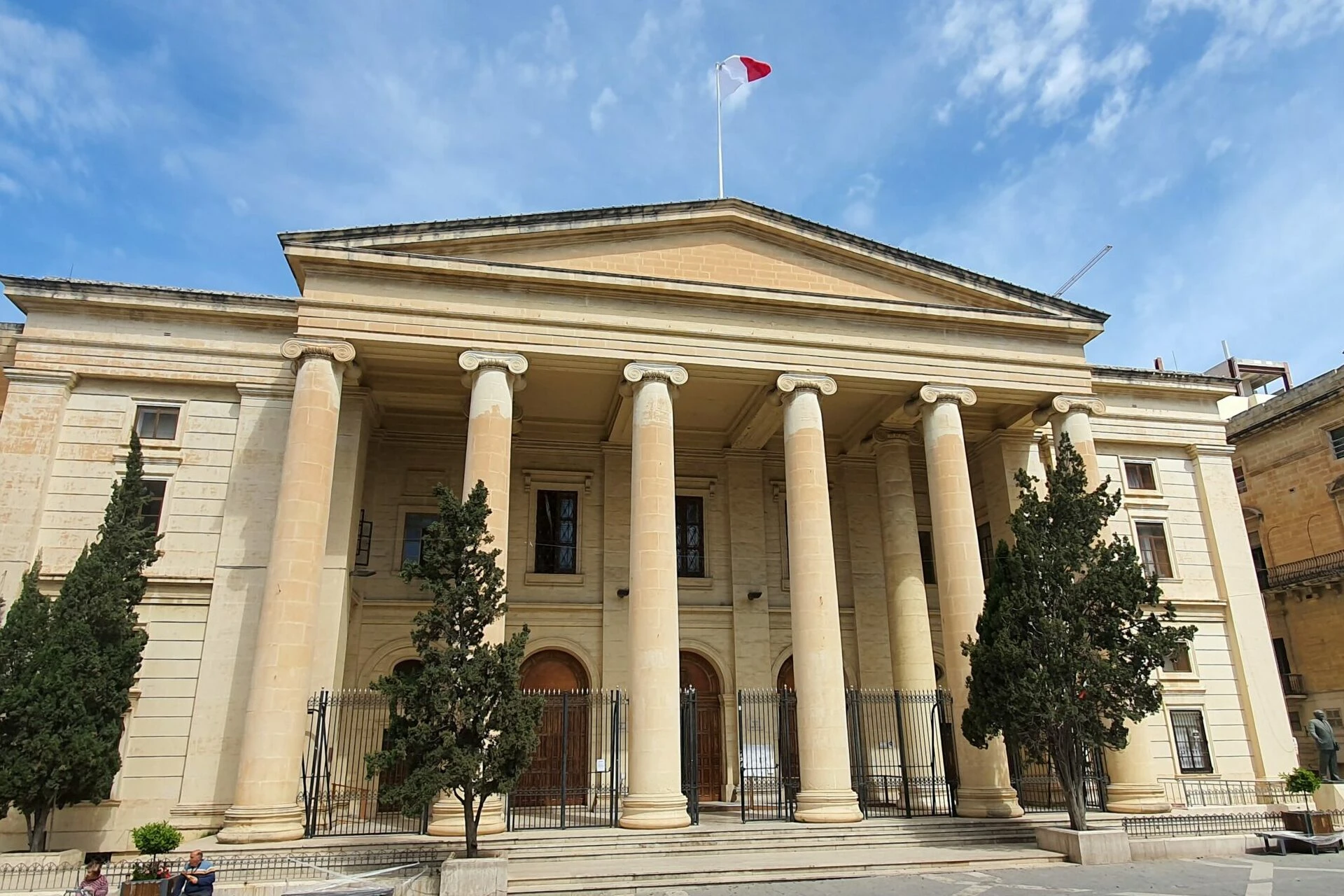We are hereby providing our detailed reaction to the constitutional amendments proposed in Bill No. 134.
Former Judges can become President
The first substantive amendment in the Bill removes the prohibition on appointing a judge as President of Malta. Repubblika does not agree with this change. In our view, the independence of the judiciary is better assured when no incentive or reward in the form of appointment to a high public office can be offered to a retired member of the judiciary.
Not only should judges not be appointed President, but we also consider that former judges should be financially secure in retirement, without the need or desire to be engaged in any other public office in the executive branch of the State. In our opinion, this should also apply to magistrates.
This view is not an adverse reflection on the abilities of judges. We have no doubt that among them there are those who would make good presidents, as exemplified by the first President of Malta. However, for the judiciary to be independent and to be seen to be independent of the government, it should not be possible for a government to reward members of the judiciary after retirement with appointments in the public administration, or to penalise them by excluding them from such appointments.
We also believe that the Constitution should prohibit retired members of the judiciary from contesting any elected political office.
Constitutional Court Sections
While we have no objection to the creation of sections of the Constitutional Court, we are not convinced that these amendments alone will have the effect of improving the efficiency of the decisions of this highest court in the country. There appears to be no credible effort to increase the specialisation of judges in this court or to increase the resources allocated to it.
Consultation when appointing a new Chief Justice
Bill 134 modifies the procedure for appointing a new Chief Justice by requiring the Prime Minister to consult the outgoing Chief Justice (and the President of Malta) on the appointment of a successor before submitting a nomination to parliament.
The European Commission has insisted for years that in order to safeguard judicial independence, the judiciary itself should be involved in the selection of its presiding officer. The government has stated that it is introducing this change to satisfy the European Commission.
However, we believe that this amendment will not effectively secure the independence of the judiciary for the following reasons:
Although the Chief Justice’s role includes the representation of the views and interests of the judiciary, the proposed consultation could take place after the Chief Justice retires, when his role, including the obligation to represent fellow judges, has ended. With the way things are done at present and even more so with the amendment that will permit a judge to be appointed President of Malta, the retiring Chief Justice could in effect be negotiating his prospects in retirement. This is the opposite of what the independence of the judiciary should be.
Furthermore, the wording of the amending clause does not oblige the Prime Minister to act on the advice given by the retiring Chief Justice regarding the choice of a successor. In other words, with this amendment, the legislative branch is retaining full discretion to choose whom to appoint to lead the judicial branch that is meant to be completely independent of it.
This goes against the repeated advice of the European Commission which said that Malta should comply with international norms of judicial independence as enshrined in Recommendation CM/Rec(2010)12 of the Committee of Ministers of the Council of Europe which in Article 47 states that where decisions on the careers of judges are taken by the legislative branch, they should follow the advice given to them by an advisory body made up largely of judges.[1] (our emphasis)
For the amending clause to satisfy this requirement, not only must the Prime Minister consult with the retiring Chief Justice, he must also take the Chief Justice’s advice.
It is our view that the Chief Justice should be selected through the work of the Judicial Appointments Committee, as all other judges are selected, without the interference of the government and Parliament.
Candidates who are not selected
We understand that members of the legal profession have expressed the view that the names of those who were shortlisted for vacant positions of judge or magistrate, but who were not selected, should no longer be published. It appears that this amendment reflects this wish.
Repubblika places on record our disagreement with provisions that reduce transparency and public accountability in the processes of selecting new judges and magistrates, or promoting magistrates to become judges.
We do not understand why anyone should feel embarrassed that they were considered but ultimately not selected for such an appointment. Furthermore, the amending clause reverts to a time when the President’s decision to exclude persons from among the shortlisted candidates would not be subject to public scrutiny.
Extension of the retirement age
We have no objection to extending the retirement age of judges so that they can continue to serve. We believe that this should be everyone’s right, not only a right reserved to judges.
However, the wording of the amending clause makes it clear that the extension of service will not be automatic; rather, it will be granted only after a member of the judiciary applies for an extension, and at the discretion of the Commission for the Administration of Justice, rather than as a matter of right.
This discretionary element carries the risk that the desire for a favourable decision by the Commission on an extension of service could influence the conduct of a member of the judiciary approaching the retirement age of 68 years. This discretionary element subverts judicial independence.
Repubblika considers this unacceptable. An alternative approach would remove this discretionary element: we propose that the retirement age in the Constitution be established at 70 years; members of the judiciary who choose to retire before reaching 70 years of age but after the current retirement age of 68 years, would be able to do so without prejudice to their retirement benefits.
In this connection, Repubblika calls attention to the fact that the membership of the Commission for the Administration of Justice includes practising lawyers who represent clients before the same judges who then require their blessing to extend their time in office to 70 years of age. This further underlines the need for a holistic discussion on the judicial system, instead of the piecemeal approach exemplified by this Bill.
Extension of the period of the first report of the ethics committee
We have no objection in principle to this amendment, except to make the general comment that the solution to backlogs of pending cases should be an improvement in resources necessary to resolve them within the time envisaged in the law, rather than the simplistic solution of extending the time envisaged in the law.
Commissioner for Standards of the Judiciary
Repubblika appreciates that the Commission for the Administration of Justice should have the resources needed to discharge its disciplinary role in relation to the judiciary. It appears that the Commission has almost no financial and human resources to fulfil its role.
We welcome the clause that will permit aggrieved members of the public to directly complain to a disciplinary authority (in future, the Commissioner for Standards of the Judiciary) about the conduct of judges or magistrates, without the need for the intercession of the Chief Justice or the Minister of Justice.
We insist, however, that there should be all the safeguards needed to ensure that the appointment of a Commissioner for Standards of the Judiciary does not have the effect of reducing judicial independence.
To this end, we believe that the Commission for the Administration of Justice, when deciding matters of judicial discipline, should not include members appointed directly by the government or Parliament. It is also our view that the Commissioner’s report on a preliminary opinion on misconduct of judges should not, as proposed, be sent to the Minister of Justice. The Commission should first exhaust its internal process before informing the Minister of Justice of the outcome. It is our view that the officials appointed to assist the Commission in the performance of its duties should all be appointed by the Commission itself and not by any other body, especially not by the government.
The amending clause provides that the Commissioner “carries out an analysis” of the case load, which seems to mean that the Commissioner will analyse the efficiency of judges. However, the amendment does not say anything about what the Commissioner or anyone else can do if it results from this analysis that a judge is not efficient. The amendment implies, wrongly, that the delays plaguing Malta’s judicial system stem solely from poor productivity of judges and magistrates, when it is clear that there are major shortcomings in the human, financial and spatial resources allocated to our courts. It is the government’s responsibility to address these deficiencies, and not the responsibility of the judges or any commissioner overseeing judicial integrity.
The amending clause provides that the annual report of the Commissioner shall be made to the Commission and the Minister of Justice. It is our view that the report should be public, even if the names of individuals who have not been found guilty of misconduct are omitted from the published version of the report.
Change in the method of appointment of the Auditor General
We have reservations about the clause concerning the appointment of the Auditor General embedded in a bill dealing almost entirely with the judiciary. This is an undesirable conflation of subject matter: the judiciary and the office of Auditor General are two entirely separate organs of the State, and should therefore be the subject of separate amending bills.
Having said that, the amending clause is anomalous because it ignores the fact that the Constitution also requires that there be a Deputy Auditor General. This office, and the way the Constitution envisages it being filled, exists to provide for continuity even in circumstances where there is no agreement on the appointment of an Auditor General.
We are concerned that this anomalous omission may be a deliberate choice by the government, and we place on record our disagreement with it.
In light of the foregoing, Repubblika recommends that a separate discussion should be held on the National Audit Office and the two constitutional offices of Auditor General and Deputy Auditor General, in order that any amendments will not prejudice the vital role of this institution in safeguarding good governance in Malta.
Minor Amendment
We have no objection to the amendment being made to Article 41 (5) of the Constitution.
Conclusion
Repubblika reiterates its view that the piecemeal amendments to the Constitution threaten the coherence of the intricate checks and balances that are intended to safeguard democratic, constitutional governance in Malta. We therefore reiterate our call for the Constitutional Convention promised by the ruling party in 2012 to be convened to deliberate and propose a holistic scheme of constitutional reforms that will renew our democracy and constitutional governance, and which, among other things, will protect and enhance the independence of the judiciary.
[1] “47. However, where the constitutional or other legal provisions prescribe that the head of state, the government or the legislative power take decisions concerning the selection and career of judges, an independent and competent authority drawn in substantial part from the judiciary (without prejudice to the rules applicable to councils for the judiciary contained in Chapter IV) should be authorised to make recommendations or express opinions which the relevant appointing authority follows in practice.”




